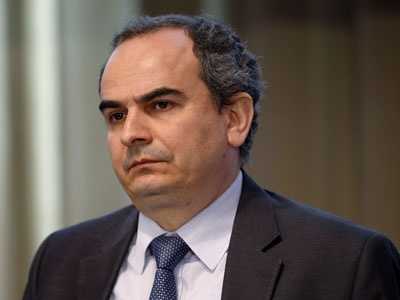By EMRE PEKER

Which one to follow? Turkey uses a wide range of interest rates and even specialists are confused about which one to focus on. Agence France-Presse/Getty Images
ISTANBUL–Turkey’s central bank has finally caved in. Having failed to convince critics that its “unorthodox” monetary policy can slow inflation, it opted for some transparency on the issue. The outcome? It sowed more confusion.
At a regular policy meeting Wednesday, one day after its latest monetary policy decision, policymakers in Ankara split economists with their message. They garnered resounding praise for clarifying their stance from some, and something approaching exasperation from others.
Economists at the gathering said officials acknowledged that annual inflation, at 7.7% in October, may be higher at the end of the year than the 6.8% forecast. Policymakers reiterated their commitment to fighting inflation, warning that consumer price increases may miss expectations by half a percentage point.
The central bank has been tightening its policies to that end since May, effectively raising borrowing costs for banks from record lows by 3.5 percentage points to more than 7%, officials told attendees.
But that’s not easy to see under a policy framework that governor Erdem Basci introduced in October 2011. With that, the central bank had been using the benchmark rate along with an interest-rate corridor that currently ranges from 3.5% to 7.75% to vary borrowing costs daily. Mr. Basci tries to manage a broad remit ranging from credit growth to volatile international capital flows, inflation, economic growth and currency stability by controlling the amount of cash in the financial system.
But even true specialists have long been confused about which rate to focus on. On Wednesday, policymakers tried to answer that question, urging market participants to stop watching the central bank’s benchmark one-week repo rate and instead focus on the interbank overnight lending rate, according to economists who attended the meeting.
That renders the 4.5% policy rate irrelevant and thrusts the interbank rate that’s currently at about 7.15% to the forefront as officials seek to anchor policy expectations. The central bankers also reaffirmed the Monetary Policy Committee’s decision on Tuesday that interbank borrowing costs will inch up to 7.75%.
“[This is a] very clear system and eliminates the downward flexibility in the monetary policy,” Erste Securities Economist Nilufer Sezgin said in a note from the meeting. “The central bank of Turkey is tighter and more orthodox.”
Policymakers’ expectation that Turkey’s $786 billion economy will expand by 4% this year–more than the government forecast that was revised down to 3.6% in October–is also giving Mr. Basci some wiggle room to tighten monetary policy and target inflation.
But since the central bank’s highest interest rate is barely above current inflation levels, many economists are still puzzled about how policymakers can deliver additional tightening without raising rates in a more traditional manner. And that’s something the central bank is reluctant to do, especially with elections coming up.
And policymakers didn’t provide any hints on what would be used as the reference rate if the central bank opts to further raise borrowing costs.
“This meeting marks an end to the central bank of Turkey’s unorthodox policy experiment–or that is what the central bank is telling us at the meeting,” said Tim Ash, chief emerging-markets economist at Standard Bank Plc. “Again, participants here are struggling to figure out whether the new monetary policy mix is here for to stay, or we will see a new mix again further down the line. The central bank seems to be struggling to sell the move to orthodoxy.”
via Turkey’s Central Bank Aims for Clarity and Achieves Confusion – MoneyBeat – WSJ.


